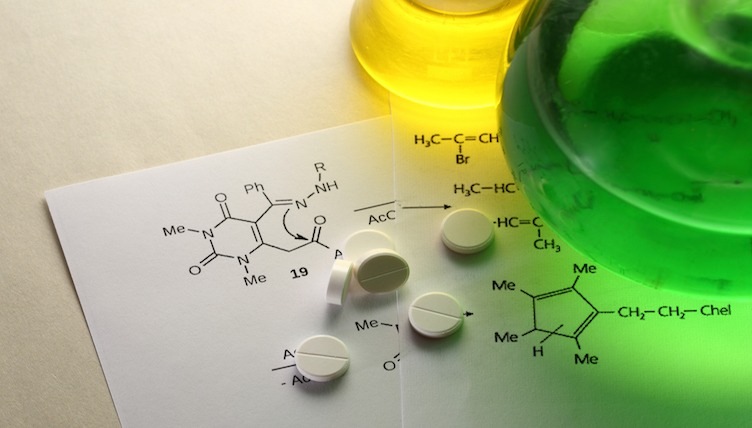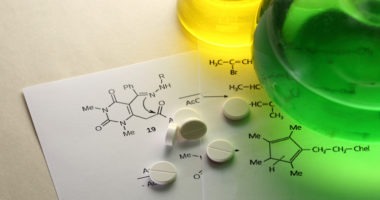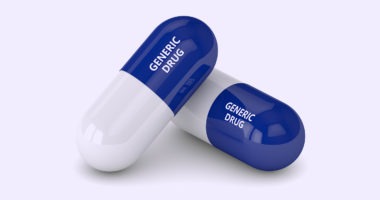CDMO/CMO Watch: Cambrex, The Next End-to-End Provider in the Offing
Cambrex, a contract manufacture of small-molecule active pharmaceutical ingredients, is the latest contract manufacturer to establish an end-to-end-business model with its pending $425-million acquisition of Halo Pharmaceuticals, a CDMO of oral solids, liquids, creams, sterile and non-sterile ointments. So what is the industry impact of such a move?
Cambrex joins other contract providers, which have used acquisitions in recent years to build end-to-to end service models that provide both API and drug-product development and manufacturing, including Lonza, Catalent, Thermo Fisher’s Patheon, and Alcami among others. Is the end-to-end service model the way of the future?
Inside the deal
Last month (July 2018), Cambrex agreed to acquire Halo Pharma, a Whippany, New Jersey-headquartered contract development and manufacturing organization (CDMO), for approximately $425 million. Halo Pharma is currently majority-owned by SK Capital Partners, a private investment firm.
With the acquisition of Halo Pharma, Cambrex will enter the finished-dosage form CDMO market. Halo Pharma provides drug-product development and commercial manufacturing services, specializing in oral solids, liquids, creams, sterile, and non-sterile ointments. Halo’s core competencies include developing and manufacturing complex formulations, products for pediatric indications, and controlled substances.
“This acquisition opens a completely new segment of the market for Cambrex in finished dose development and manufacturing,” said Steve Klosk, President and Chief Executive Officer of Cambrex. “Halo’s expertise in oral solids, liquids, creams and ointments fits well with our small-molecule API [active pharmaceutical ingredient] business and brings a substantial new customer base and pipeline of small-molecule products. We believe the combination of Cambrex and Halo will attract new customers to the combined company and allow us to more efficiently broaden our pipeline of products, while continuing to capitalize on the rapidly-growing pharmaceutical services market.”
Halo Pharma operates two GMP-compliant facilities located in Whippany, New Jersey and Montreal, Québec, Canada, comprising 430,000 square feet of plant space. Halo’s 450-person workforce will join Cambrex’s 1,200 employees across the US and Europe.
Completion of the transaction is subject to customary closing conditions and is expected to occur during the third quarter of 2018.
Company on the move
The pending addition of Halo follows a series of investments by Cambrex in its small-molecule API capacity and capabilities. Earlier this year (June 2018), the company announced plans to expand research and development (R&D) capabilities at its site in Paullo, Milan, Italy. The company is investing to construct a new 150-square-meter R&D laboratory and recruit additional scientists to increase the number of generic APIs in the company’s development portfolio. Cambrex currently manufactures over 70 generic APIs, and the Milan site comprises seven production departments, supported by a pilot plant, kilo-scale plant, and development and analytical laboratories. The company also installed a new pilot plant at the Milan site in 2017.
Also in June, the company announced plans to to begin a $5-million expansion of laboratory facilities at its site in Karlskoga, Sweden. In 2017, Cambrex upgraded its continuous-flow capabilities in Karlskoga with a dedicated commercial-scale unit that is capable of producing multiple metric tons of high-purity API intermediates per annum. Also in 2017, it installed new, large-scale manufacturing capacity at its facility in Karlskoga.
Cambrex is also making other investments as part of its strategic plan to increase its development capacity and resources in North America. The company is progressing a new $24-million facility for manufacturing highly potent APIs at its site in Charles City, Iowa. The project will also see the reconfiguration of the existing small-scale manufacturing area to provide a single high-containment building to support early-stage development and manufacturing. The facility is expected to be operational in the first half of 2019. Also, earlier this year (January 2018), Cambrex announced an investment to expand chemical and analytical development capabilities at its Charles City plant. The expansion adds an additional 2,000 square feet of laboratory space for development projects. Also, in 2017, the company completed an expansion of cGMP small-scale capacity at its plant in Charles City and completed an expansion of large-scale manufacturing capabilities there. In 2016, the company opened a $50-million, 7,500-square-foot multi-purpose manufacturing facility at Charles City, which added a total of 70 cubic meters of manufacturing capacity to the site.
In May 2018, the company completed a pilot-plant expansion at its facility in High Point, North Carolina with the installation and commissioning of a fourth reactor suite, which increased the site’s reactor capacity by around 30%, and also completed and implemented an upgrade of the High Point site’s analytical chromatography data systems for quality control and analytical R&D. Cambrex gained the 35,000-square-foot High Point site, formerly PharmaCore, in October 2016. At the facility, Cambrex produces APIs and intermediates requiring in batch sizes from milligrams to 100 kg to support clinical trials from Phase I to Phase III. The company also completed the installation of multiple continuous-flow reactor platforms at its process-development facility in High Point, North Carolina.
The investments come as the company is reporting favorable financial returns. For the first six months of 2018, Cambrex reported net revenues of $293.1 million, 22.4% higher than the first six months of 2017. An increase in volumes was driven by higher sales of branded and generic APIs, and custom development products partially offset by lower sales of controlled substances. Europe accounted for 63% of first-half 2018 revenues, or $184.96 million, the US 31%, or $91.48 million, and Asia 2.7%, or $7.85 million.
Building end-to-end service models through recent acquisitions
In making the decision to acquire Halo Pharmaceuticals, Cambrex joins other contract providers building their capabilities, through both acquisition and organically, to become end-to-end service providers offering both API and drug-product development and manufacturing capabilities.
Lonza. Lonza, like Cambrex, built an end-to-end service model in small molecules through acquisition, namely its $5.5-billion acquisition of Capsugel, a provider of dosage forms, in 2017. With the acquisition, the largest in the company’s history, Lonza positions itself in the drug-product services sector by gaining formulation and oral dosage delivery technologies, including a position in hard-capsule technologies.
In addition to Capsugel, Lonza acquired Micro-Macinazione, a Monteggio, Switzerland-based provider of micronization services, in 2017. The addition of Capsugel and Micro-Macinazione provided Lonza an integrated offering in small-molecule technologies by adding capabilities in dosage form and drug-delivery systems to complement Lonza’s existing custom API development and manufacturing services.
Lonza also has made internal investments to build capabilities for drug-product development and manufacturing to complement its API capabilities in small molecules and biologics. In November 2016, the company opened drug-product services laboratories in Basel, Switzerland, which included a new 1,300-square-meter facility that will focus formulation development, drug-product analytical development, and quality control. Lonza first announced plans to expand its pharmaceutical and biotechnology segment by offering development and manufacturing services for clinical outsourcing of drug products in February 2016 with a focus on parenteral dosage forms, including products for injection and infusion for intravenous, subcutaneous, intraocular and other routes of parenteral administration. Services include options for monoclonal antibodies, other biologics, drug conjugates, peptides and small molecules that require a parenteral dosage form.
Catalent. Catalent also made a large play in becoming an end-to-end provider with its $950-million acquisition of Cook Pharmica, a Bloomington, Indiana CDMO of biologic drug substances and parenteral drug products in 2017. The acquisition of Cook Pharmica provides Catalent capabilities in biologics development, clinical and commercial cell-culture manufacturing, formulation, finished-dose manufacturing, and packaging. The acquisition complemented Catalent’s existing capabilities in cell-line engineering, bioconjugate development, analytical services, biomanufacturing, prefilled syringe, and blow/fill/seal technologies. With the Cook acquisition, Catalent gained an 875,000-square-foot development and manufacturing facility in Bloomington, Indiana. Catalent gained additional expertise in liquid and lyophilized sterile formulation, fill/finish across vials, prefilled syringes, auto-injectors, cartridges and safety devices, and 2,500 liters of biomanufacturing capacity to augment the company’s biologics business. Catalent operates a biologics manufacturing facility in Madison, Wisconsin and has proprietary cell-line technology, GPEx. Its operations also include fill/finish services in Brussels, Belgium and Limoges, France; conjugation technology in Emeryville, California; and a network of biologics analytical locations. Following the acquisition, Catalent created a new, dedicated business unit focused on Biologics and Specialty Drug Delivery, which spans biologics development, analytical services, and drug-substance and drug-product manufacturing, in addition to Catalent’s respiratory and ophthalmic platforms.
Patheon. Patheon, which was acquired by Thermo Fisher Scientific for $7.2 billion in 2017, started its strategy of becoming an end-to-end provider in 2014 with the formation of DPx Holdings B.V., privately owned by the private-equity firm JLL Partners (51%) and Royal DSM (49%), which was the result of a $2.65-billion deal between Patheon and DSM, first announced in November 2013 and completed in March 2014. JLL contributed $500 million in equity to DPx Holdings B.V., and DSM contributed DSM Pharmaceutical Products and received approximately $115 million in cash and $75 million of preferred partnerships interest, thereby valuing DSM Pharmaceutical Products at $670 million. The move provided Patheon with small-molecule API development and manufacturing capabilities as well as the biosolutions and biologic businesses of the former DSM Pharmaceutical Products. It added the API piece to Patheon’s historical core competency in formulation development and drug product manufacturing.
Since then, Patheon has further built the API side of its end-to-end business with additional acquisitions. In 2017, Patheon added to its small-molecule development and manufacturing capabilities by acquiring Roche’s 300,000 square-foot facility API manufacturing facility in Florence, South Carolina. The site is Patheon’s flagship US API operation for commercial-scale and mid-scale API production.
In 2015, Patheon acquired IRIX Pharmaceuticals, a Florence, South Carolina-headquartered company, specializing in making difficult-to-manufacture APIs. With the acquisition, Patheon secured additional API development and manufacturing services in the US, including high-potency (SafeBridge Class IV certified) and controlled substances (Schedule 1-4) and commercial API manufacturing at sites in Greenville and Florence, South Carolina.
The acquisition of Gallus BioPharmaceuticals, a contract manufacturing company specializing in biologics completed in 2014, provided Patheon with US-based biologic drug substance sites in the US and complemented Patheon’s two existing biopharmaceutical production sites in Groningen, the Netherlands and Brisbane, Australia, which the company secured through the DSM transaction.
Alcami. Another end-to-end provider is Alcami, which became so through the combination of AAIPharma Services Corporation (AAI), a CDMO of drug products, and Cambridge Major Laboratories, a contract small-molecule API manufacturer in 2013. Alcami, which became the name of the combined company in 2016, is headquartered within Research Triangle Park in Durham, North Carolina, with 10 locations globally. Alcami’s services include: API development and manufacturing, solid-state chemistry, formulation development, analytical development and testing services, drug-product manufacturing (oral solid dose and parenteral), and packaging and stability services.
AMRI. AMRI, historically a contract small-molecule API producer, built its capabilities on the drug-product side through several key acquisitions in parenteral drug development and manufacturing. In 2014, it acquired Oso Biopharmaceuticals (OsoBio), a Albuquerque, New Mexico-based contract manufacturer of injectable drug products with large-scale commercial production. AMRI entered the parenteral drug product space with its 2010 acquisition of Hyaluron, which provided AMRI capabilities for manufacturing and sterile filling of parenteral drugs. In 2015, AMRI acquired Aptuit’s aseptic clinical manufacturing site in Glasgow, UK. The addition of the Glasgow operation strengthened the company’s front-end formulation expertise in its sterile injectable business to provide a single source for sterile fill/finish needs from formulation to commercial supply. AMRI now has four business segments: drug-discovery services, active pharmaceutical ingredients, drug products, and fine chemicals (FC). Its DDS segment provides services from hit identification to investigational new drug applications.
Joining established end-to-end providers
Other companies also have end-to-end service models, both pure-play CDMOs/CMOs and the contract manufacturing arms of pharmaceutical companies. Almac, for example, a Craigavon, UK-headquartered company, offers small-molecule and peptide API development and manufacturing as well solid-dosage development and manufacturing. Recipharm, a Jordbro, Sweden-based CDMO also offers API development and manufacturing through its Paderno Dugnano, Italy facility, an API development facility in Uppsala, Sweden, and a beta-lactam plant for the lyophilization of bulk API in Lainate, Italy. On the drug-product side, it provides development and manufacturing services for solids, semi-solids, liquids, injectables, and ophthalmics.
CordenPharma is a contract provider of both small-molecule APIs and drug products (including solid-dosage products and sterile injectables), and it has made several recent expansions to add its capabilities on both sides. In November 2017, the company acquired a former Pfizer facility, a 54,000-square-foot API manufacturing facility in Boulder, Colorado with more than 100 employees. The facility is now called CordenPharma Boulder. The site specializes in the development, scale-up, optimization, and production of highly potent and cytotoxic/cytostatic APIs from development quantities to commercialization. The acquisition of the Boulder facility is aligned with a broader corporate strategy of offering fully integrated supply (APIs, drug products, packaging, and logistics), including a broad range of expertise in the development and manufacturing of highly potent and oncology products. CordenPharma Boulder and CordenPharma Colorado manufacture high-potency APIs. CordenPharma Plankstadt (Germany) focuses on highly potent oral solid dosage formulations, and CordenPharma Latina (Italy) is focused on oncological injectables.
Also on the small-molecule API side, in 2017, the company announced an investment of EUR 3.7 million ($4.2 million) in the manufacturing site infrastructure of its CordenPharma Switzerland facility located in Liestal, Switzerland. The investment includes an expansion of the square footage dedicated to small-molecule, peptide and carbohydrate development services as well as an approximate EUR 2-million ($2.3-million) investment in new automated development and optimization equipment. On the drug-product side, in 2017, the company completed the addition of an early-development suite for highly potent, oral solid dosage products in CordenPharma Plankstadt (Germany). The new facility allows for the production of small batches, from 100 g to approximately 1,000 g.
Another example of an end-to-end provider is Siegfried, headquartered in Zofingen, Switzerland, which provides both small-molecule API and drug-product (solid-dosage and sterile manufacturing/aseptic filling) development and manufacturing services. On the API side, it has facilities in Switzerland (Zofingen and Evionnaz), Germany (Minden), France (St. Vulbas), the US (Pennsville, New Jersey), and China (Nantong). On the drug-product side, it has sterile manufacturing/aseptic filling at facilities in Germany (Hameln) and the US (Irvine, California), and solid-dosage manufacturing at facilities in Switzerland (Zofingen) and Malta (Hal Far).
Siegfried has further developed and expanded the company’s global production network resulting in an integrated supply offering forward and backward integrated service and critical size expansion. The company has built its API and drug-product capabilities organically and through acquisitions. Among recent investments, in 2016, Chinese authorities issued Siegfried a final operating license for large-scale production at its API manufacturing plant in Nantong, China, which was inaugurated in 2015. Also, in 2016, the company’s headquarters in Zofingen, Switzerland, put into operation a new production building constructed in vertical flow technology in accordance with the latest technology. Siegfried also integrated three manufacturing sites (Evionnaz, Switzerland; Saint-Vulbas, France; and Minden, Germany) for intermediates and APIs that the company acquired from BASF in 2015. The acquisition of the BASF sites followed two earlier acquisitions on the drug-product side: the 2012 acquisition of California-based Alliance Medical Products, Inc. (AMP), which added to the company’s sterile-filling capabilities, and the 2014 acquisition of Germany-based Hameln Pharma, a provider of development and production of sterile liquid pharmaceuticals, which strengthened Siegfried’s sterile-filling segment. Earlier this year (March 2018), Siegfried added to its drug-product manufacturing network with the acquisition from Arena Pharmaceuticals of a solid-dosage manufacturing facility in Zofingen, Switzerland.
As part of its new “Evolve” strategy the company says it will expand its global solid drug-product footprint and its overall presence with its own production facilities, including in the US and enhance its development set-up. The company says it plans to grow within the value chain of its existing businesses by reaching critical size in the drug- product sector and through backward integration. Siegfried plans to diversify into adjacent new businesses by enhancing its technology base in micronization, lyophilization, spray drying, and by adding additional high-potent manufacturing capabilities.
Piramal Pharma Solutions, the contract manufacturing arm of the Indian pharmaceutical company Piramal, is another example of an end-to-end provider. In 2016, Piramal acquired the Riverview, Michigan-based contract small-molecule manufacturer, Ash Stevens. Pfizer CentreOne, the contract manufacturing arm of Pfizer, provides custom small-molecule APIs and contract services for sterile injectables and highly potent oral solid dosage forms. Pfizer added to its sterile injectables contract business through its $17-billion acquisition of Hospira in 2015, which added to the company’s drug portfolio for sterile injectables and biosimilars but also provided contract sterile manufacturing services.
Editor’s note: The article was updated to include additional information on CordenPharma and Siegfried.





